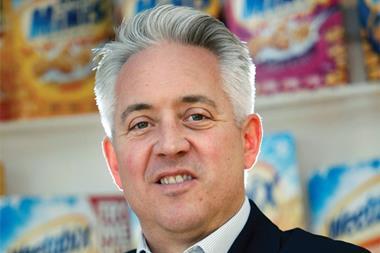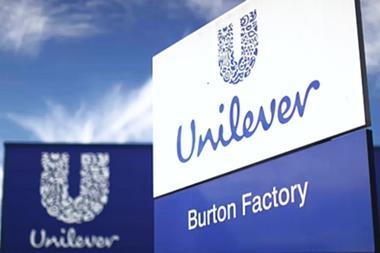
The new management team at Premier Foods (PFD) will be tasked with overseeing a sell-off of its key brands according to City sources, as the listed food group’s strategy shifts to generating shareholder returns through disposals.
The Mr Kipling and Batchelors owner competed a boardroom shake-up last week by naming UK MD Alex Whitehouse as its new CEO, and former Reckitt Benckiser finance chief Colin Day as chairman.
The appointments come in the midst of a strategic review and follow the departure of former CEO Gavin Darby and chairman Keith Hamill, after a row with activist shareholders Paulson and Oasis over their pursuit of organic growth, rather than a sale of the business or brands.
With these shareholders having since taken seats on the Premier board, City sources said Premier’s strategic review will conclude “the sum of the parts is greater than the whole”.
More information is expected to be revealed at Premier’s interim results in November, but one investment banking source said Premier will “follow a disposal of everything strategy to realise shareholder value, getting each part in shape prior to disposal”.
Premier publicly tried to sell its Ambrosia brand for around £150m late last year, but pulled the sale in February as bid interest fell well short of its valuation. Premier also previously held less public talks over the possible £200m sale of its Batchelors brand, and City sources suggested it is now exploring a possible £300m sale of its flagship Mr Kipling brand.
But a dealmaking source noted that an effective break-up of Premier is complicated by its significant debt and pensions obligations.
Premier has £4.6bn of pension obligations compared to the firm’s market cap of just £286m. Though its two schemes have a combined surplus of £310m, its Premier Foods scheme has a net deficit of £465m.
“If they decide to break it up then they are basically saying ‘let’s try and realise proceeds for the pension holders’,” the source notes.
The failure of the prospective sales of Ambrosia and Batchelors illustrates that Premier needs to generate significant sums for its key assets to make any sale worthwhile, given the debt and pensions situation.
It is thought the group’s financial situation also makes it wary of selling off its ‘crown jewels’ only to be left with less attractive and profitable assets that leave it unable to fulfil its obligations.
A piecemeal break-up of the group is also complicated by a crossover between a number of key brands, which share manufacturing facilities - a key attraction of the Ambrosia sale was that it was the most standalone of its big brands and easiest to separate from the rest of the group.
Premier’s most recent quarterly sales showed improvement - with first quarter group sales up 1.1% driven by 2.9% growth in branded sales - but its share price has continued to flat-line.
Premier’s share price rallied to above 60p during the 2016 bid approach from McCormick that was rejected by the previous Premier board. The shares are currently at 32.5p and have almost entirely remained below 40p in 2019.



















No comments yet